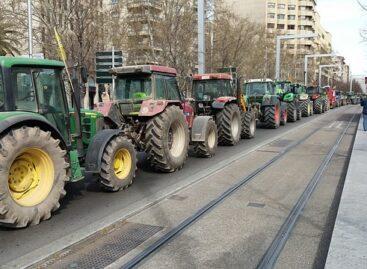The new common agricultural policy helps farmers with significant resources
In the new EU support period between 2023-2027, the common agricultural policy offers Hungarian farmers a variety of choices. Acquaintance with the new rules is now one of the most important tasks – stated the State Secretary of the Ministry of Agriculture responsible for agriculture and rural development on Friday, at the agricultural forum held in Keszthely.

(Photo: PIxabay)
Zsolt Feldman explained at the agricultural forum of the Association of Zala County Farmers: although there are fewer funds for agricultural policy in the EU in the current budget cycle, the amount of subsidies available in Hungary is increasing significantly, thanks to the 80 percent domestic supplement provided by the government from the national budget. The most important thing for farmers now is to get to know the new conditions related to area-based subsidies, since in 2023 they will have to shape their farming practices based on them. The most important consequence of the EU agreement on the new period of the common agricultural policy, reached in 2021, is the strengthening of the basic conditions for environmental sustainability. The requirements of the correct agricultural and environmental condition include the maintenance ratio of the permanent lawn area, the creation of protective strips along the watercourses, but new conditions also apply to farming on sloping areas to prevent soil erosion, he said. He also mentioned new crop rotation rules for farms larger than 10 hectares for soil protection and phytosanitary reasons, as well as the minimum required soil cover. He also highlighted the minimum requirements for set-aside land areas and the regulation requiring the strengthening of protection against invasive weeds. Balázs Győrffy, the president of the National Chamber of Agrarian Economy, stated regarding the 5,300 billion forint EU funds: “it is not about free bread from Brussels”. As he put it, the Union sets expectations for agriculture that must be compensated for by farmers. He explained about the support options of the second pillar of the CAP: every fourth forint is provided by the Hungarian government, and in the history of the EU there has never been an example of support of a similar magnitude from any member state. The president of the Chamber of Agriculture explained that 52 percent of the amount of HUF 2,891 billion is earmarked for economic development, 38 percent for agricultural environmental protection measures, 8 percent for the development of ecological farming, and 5 percent for the protection of Natura 2000 areas. Priority is given to young farmers and small producers, HUF 100 billion will go to support them – listed Balázs Győrffy. Applicants can win HUF 15 million per application for the development of agricultural farms, but green investments aimed at reducing energy dependence are also supported up to a maximum of EUR 15 million. The president of the Chamber of Agriculture also touched on the fact that a land tax will be levied in Hódmezővásárhely from January 1. After the particularly severe drought, he called the tax of HUF 10,000 per hectare “serious insensitivity”, which is an inflation-increasing property tax, and a signature collection was launched as a firm rejection of it.
János Nagy, the president of the National Land Center, recalled that in 2015-2016, 23.6 thousand plots of land under 3 hectares were announced nationwide for a total of 25.2 thousand hectares within the framework of the state land sale program
Only 60 percent of the offered areas were sold, at an average price of HUF 1,115,000. During the auction sale, 12.5 thousand pieces of land, 254 thousand hectares, were announced, of which 70 percent found a buyer, at an average price of HUF 1,573 thousand per hectare. At the time, the decision-makers expected that the tenants would typically be the buyers, but only 16 percent of the tenants of the areas under three hectares bought from the smaller plots of land, and 14 percent during the auctions, which was mainly due to the lack of capital and the fact that the state profit leases were and remain favorable constructions – he explained. János Nagy is the current owner of the earth! about the experiences of the program so far, he said: five phases of the sale of land under 10 hectares by announcement have been completed so far, during which 14,000 plots of land, i.e. 17,500 hectares, were advertised, and offers were received for 48 percent of them, at an average price of HUF 1,291,000. This is not much higher than the average sales price for the period ended in 2016.
AM
Related news
Serbian farmers block roads to protest cheap imports
🎧 Hallgasd a cikket: Lejátszás Szünet Folytatás Leállítás Nyelv: Auto…
Read more >Related news
Historic price reduction at ALDI
🎧 Hallgasd a cikket: Lejátszás Szünet Folytatás Leállítás Nyelv: Auto…
Read more >







